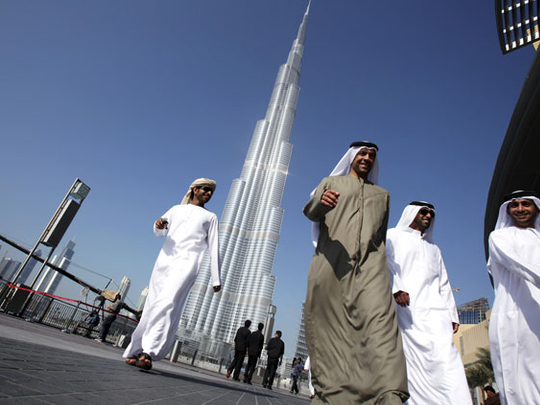
GCC economies are heavily dependent on oil and the lower oil price environment in the last three years has significantly hampered the regional economic activity. According to IMF, the real GDP growth for the region declined from a high of 3.4 per cent in 2013 to as low as 0.5 per cent in 2017, while the fiscal balance declined from 10.3 per cent of GDP to -6.3 per cent of GDP in 2017.
Consequently, the regional governments were compelled to take a tough stance on fiscal consolidation which included austerity measures, such as reduction in subsidies and cutbacks in spending, combined with fiscal reforms ranging from introduction of new taxes to privatisation of state owned enterprises.
While these measures were prudent to ensure economic diversification in the long-term, they also had a short-term negative impact on the domestic demand. Prolonged volatility in oil prices added to the woes and further weakened investor confidence in the region.
Since the beginning of 2018, the tides appear to be changing, with oil prices stabilising at comfortable levels and most GCC economies expected to post fiscal surplus going forward. These surpluses should provide sufficient fiscal space for regional economies to temporarily adopt a modestly expansionary fiscal stance required to boost activity in non-oil sectors.
Regional governments should follow suit from Saudi’s 2018 budget, which significantly increased spending levels in job-creating sectors, such as education, healthcare and infrastructure.
While the regional governments maintained relatively high spending levels in education and healthcare during austerity years, these sectors still require significant investments to realise their full potential in terms of economic diversification and job creation.
On the other hand, several infrastructure projects were either scaled back or deferred, as the regional governments tried to rationalise capital spending. Revival of these infrastructure projects will be imperative especially in light of the upcoming mega events, such as FIFA 2022 World Cup and Dubai Expo 2020.
These infrastructure projects also present an opportunity for the regional government to engage private sector through public-private partnerships (PPPs). Given that most Gulf countries have developed or are developing a legal framework to tender and manage PPPs, the expectation would be to achieve greater efficiencies in the development of infrastructure, the management of assets, and the provision of services.
According to PWC, the GCC states could avoid $164 billion in capital expenditures by 2021 across utilities, airports, healthcare and education alone if they embrace and bolster private sector involvement.
Privatisation of state-owned enterprises has always been a contentious issue in the region. Efforts toward privatisation have been largely correlated with downturn in oil prices and once the oil prices reach fiscal break-even, these efforts tend to fade away.
In the last three years, regional governments have disclosed ambitious privatisation plans, led by Saudi Arabia that plans to raise as much as $200 billion (excluding Aramco’s IPO) by 2030 through the privatisation of state enterprises in various sectors ranging from hospitals to airports to grain silos.
Similarly, Oman is expected to list about 10 state-owned enterprises in the next three years while the UAE is gearing up for planned IPOs of Emirates Global Aluminium, Abu Dhabi Ports Company and Etihad REIT. While some progress, most notably the listing of Abu Dhabi National Oil Company and privatisation of airports in Saudi Arabia, has been made in this front, most of the other planned listings including the much-hyped IPO of Saudi Aramco, were deferred.
Such inconsistencies dampens investor sentiments, both domestic and foreign, and significantly undermines government’s reformist agenda. Therefore, it is imperative that regional governments follow through on the privatisation initiatives while providing additional stimulus such as Saudi’s decision to increase foreign ownership limit in education and health care sectors, investments in capital markets through their Sovereign Wealth Fund to boost investor confidence.
The role of Foreign Direct Investment (FDI) cannot be discounted, especially in the context of economic revival. Since the oil price shock of 2014, GCC states have been evaluating the role of foreign investors to ease fiscal burdens and economic diversification and significant progress has been made so far.
For instance, Bahrain, which is most dependent on FDIs within the Gulf region, permitted full onshore foreign ownership in tourism and mining sectors, while Saudi Arabia permitted 100 per cent foreign ownership in health care, education, retail and wholesale trade, and engineering sectors. Similarly, Kuwait offered licenses for 100 per cent investment in multiple sectors including infrastructure, tourism, IT and housing under a 2014 law, thereby facilitating expansion of IT giants such as IBM and GE. On the other hand, the UAE took a more pragmatic approach by offering 10 year residency visa and 100 per cent business ownership to expatriates.
While notable progress has been made on the policy front, the regional governments should now focus on providing a conducive business environment. An analysis of global ease of doing business rankings show that all GCC states, except the UAE, have seen rankings deteriorate since 2010.
Therefore, reforms pertaining to property rights, investor protection, dispute resolution and contract enforcement will be crucial to attract foreign investment and raise private sector participation. Additionally, the regional government should also re-evaluate labour market policies, particularly the rationalisation of public-sector wages, liberalised movement of foreign workers and increased participation of women.
In conclusion, the GCC economies showcased an extraordinary resilience to low and volatile oil prices environment thanks to their commitment to fiscal prudence and economic reforms. The regional governments should now focus on supporting economic activity and private sector participation through a modestly expansionary fiscal stance well supported by revenue mobilisation measures such as the implementation of value-added and excise tax, and the privatisation of state owned enterprises. Most importantly, the governments should avoid complacency especially in wake of oil price rebound and maintain their reformist agenda.
Shailesh Dash is an active Entrepreneur & Fund Manager and has promoted several Financial Services, Healthcare, Retail and Logistics companies.








